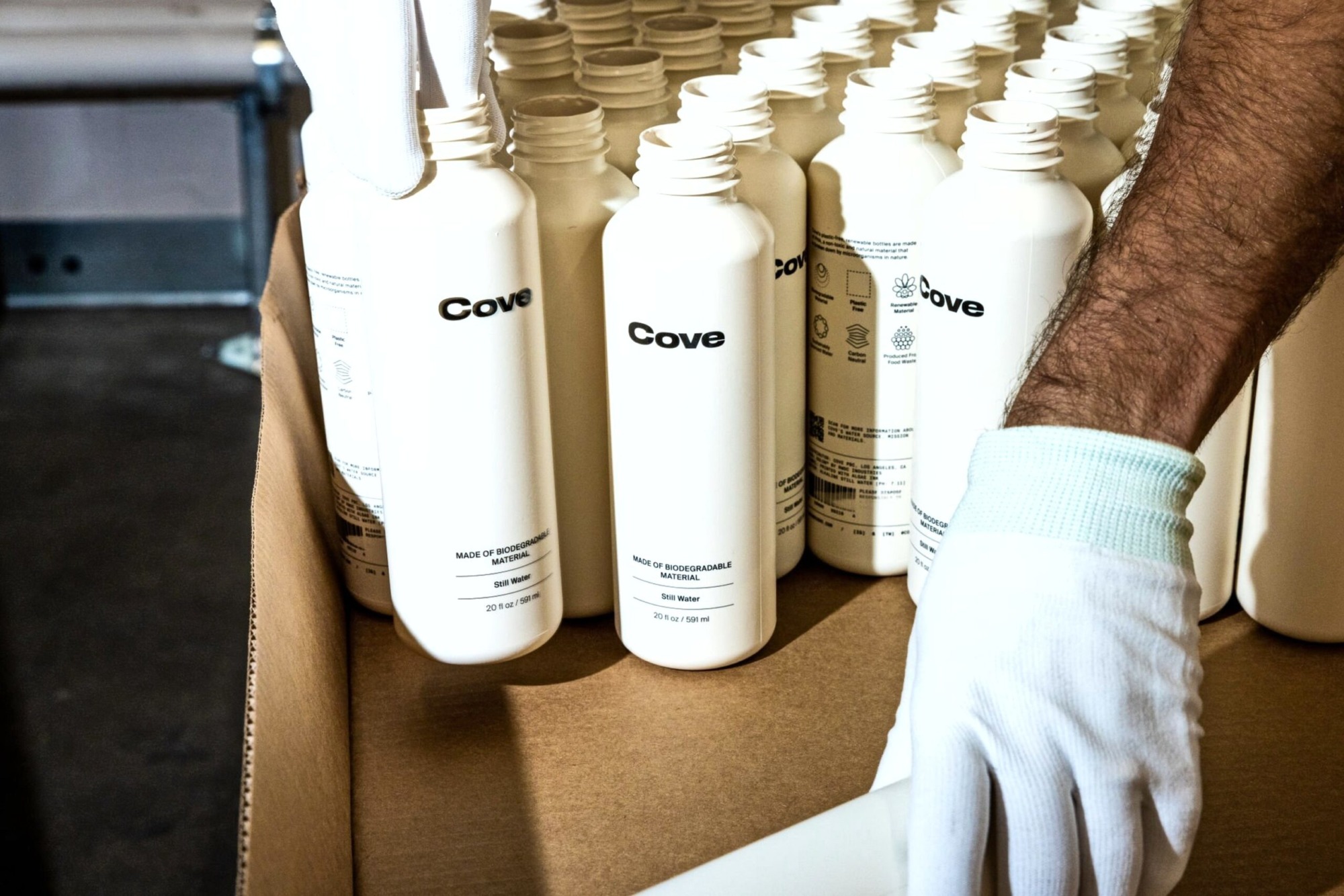Premium organic grocer Erewhon has launched what it says is the “world’s first fully biodegradable water bottle” in Los Angeles. The bottle, developed by U.S. startup Cove, has been certified as biodegradable by TÜV Austria, including the cap. It is made of PHA, which is extracted from organic residues or CO2 via a fermentation process. Compostability is one of many paths to greater sustainability in packaging. It is a rather controversial issue in Europe, but fits well into the mindset of consumers in the USA. This is a crucial point.
Cove water bottles are available in all six Erewhon stores in Los Angeles and online in since December 2022. The startup plans to add more retail partners and is currently expanding production at its California plant to do so.
The bioplastic
According to the company, the bottle and cap are made of Polyhydroxyalkanoate (PHA). The material is obtained via a fermentation process, in which microbes are fed vegetable oils, sugar, food waste or captured CO2. From these starting materials, the microbes produce polymers in a natural process, which they accumulate in their cells. From there, they can be extracted and processed into plastic.
The compostability
If this bioplastic later enters the environment, other microbes can break it down and thus biodegrade it. Under industrial conditions, the bottles are said to be compostable within 90 days. Decomposition under natural conditions take less than five years in water or soil, according to Cove. The startup has had the biodegradability of the bottle and cap certified by TÜV Austria in marine, soil, and freshwater environments, as well as in industrial and domestic composting.
Algae-based ink
To print the deliberately sparse graphics on the front of the bottle, Cove says it uses an algae-based ink.
Outlook and classification
According to an analysis by Data Bridge Market Research, the PHA market will grow at an annual rate of 5.4% through 2029. Biodegradability is just one of many paths being taken by the packaging industry within the ongoing sustainability revolution. In Europe, it is often the subject of controversy. The emphasis here is on circular economy and the preservation of raw materials. Composting, on the other hand, is often viewed critically because it can encourage consumers to throw things away.
The role of the mindset
This is neither thinking too short nor too far. Because the truth lies not only in the climatic conditions for composting in the respective market and the state of the infrastructure for collection and recycling, but above all in the (regional) mindset of consumers. Because whatever sustainable solution is developed and offered: It must have the acceptance of consumers and fit their habits and preferences. Contrary to some prejudices in Europe, sustainability also plays an important role in the USA – even if it uses other means, as in this case.

